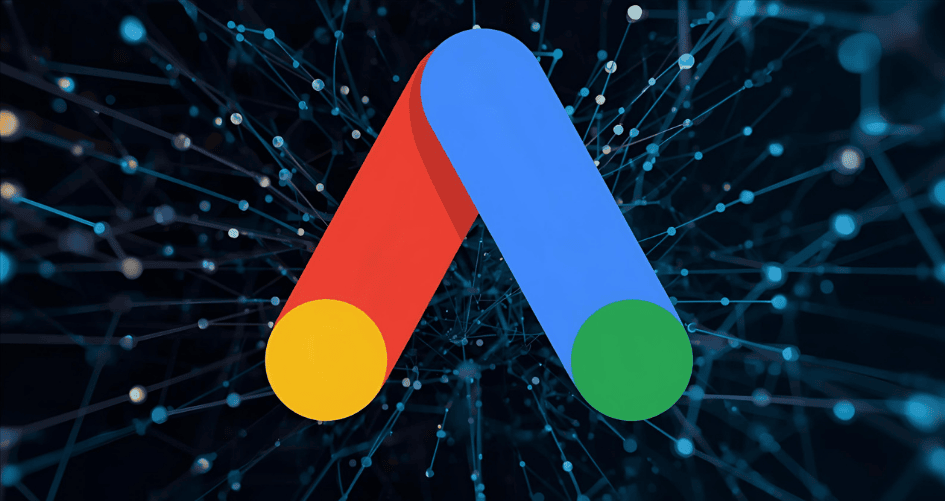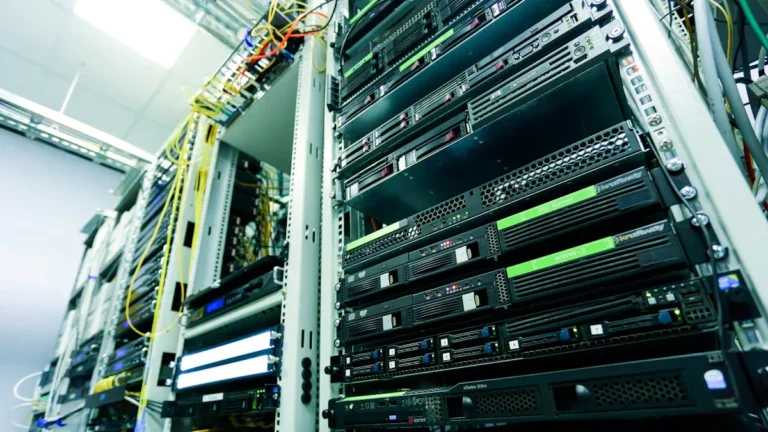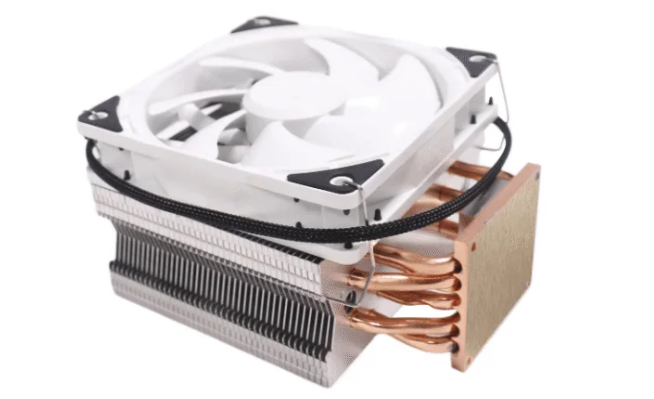1. What is the Google AI Server and how does it work?
The Google AI server is a high-performance machine learning and artificial intelligence (AI) infrastructure developed by Google. It supports a wide range of AI workloads, from training large-scale neural networks to performing real-time inference. These servers are designed to handle massive data sets and run complex algorithms efficiently, leveraging cutting-edge hardware like Tensor Processing Units (TPUs) and GPUs.
Google AI servers are often utilized in cloud-based platforms such as Google Cloud AI and Google AI Hub, providing scalable AI computing resources to businesses and developers. These servers integrate seamlessly with Google’s software ecosystem, including TensorFlow and other machine learning frameworks. By utilizing distributed computing, Google AI servers can scale horizontally, meaning they can manage larger data sets and more complex models without sacrificing performance.
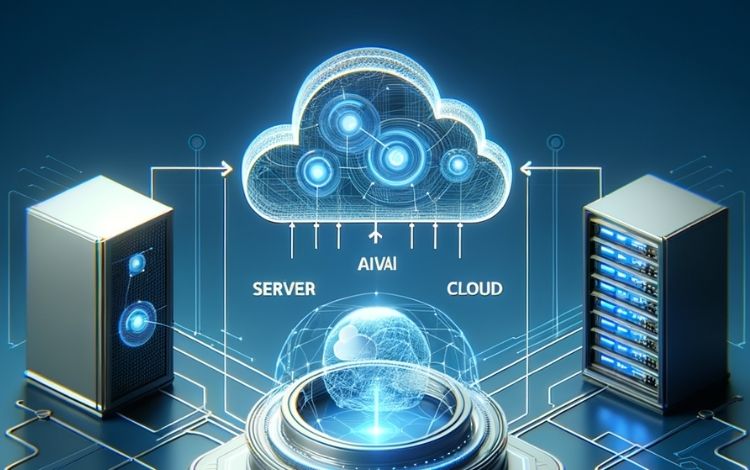
2. How has the Google AI Server evolved over the years?
The development of Google AI servers has been marked by continuous innovation in both hardware and software. Initially, Google relied on traditional CPUs and GPUs to power AI computations. However, the company soon realized the need for specialized hardware capable of handling the increasing computational demands of AI algorithms. This led to the development of TPUs (Tensor Processing Units), Google’s custom-built chips optimized for machine learning tasks.
The introduction of TPUs represented a significant step forward in AI processing power, enabling faster training times and more efficient model inference. Over the years, Google has released multiple generations of TPUs, each offering improved performance and efficiency. For example, the TPU v4 is capable of 275 teraflops of processing power, making it one of the most powerful AI accelerators in the market today.
3. What are the benefits of using Google AI Servers for businesses?
Using Google AI servers offers several benefits to businesses looking to deploy AI solutions. First, these servers provide access to Google’s vast computing infrastructure, allowing companies to scale their AI operations without investing heavily in hardware. Google Cloud AI services are pay-as-you-go, so businesses can adjust their computing capacity based on their needs.
Second, Google’s AI servers are optimized for machine learning frameworks like TensorFlow, simplifying the development and deployment of AI models. The integration with Google Cloud also ensures that businesses can leverage other cloud services, such as data storage and real-time analytics, creating a seamless AI development environment.
Lastly, Google’s AI servers offer edge AI server capabilities, meaning businesses can deploy AI models closer to where the data is generated, reducing latency and improving performance. This is particularly beneficial for industries like healthcare and autonomous vehicles, where real-time decision-making is crucial.
4. What are the key components of Google AI Servers?
The key components of a Google AI server include TPUs, GPUs, high-performance CPUs, and scalable memory and storage. While TPUs are Google’s proprietary technology, GPU AI serversare also a significant part of their infrastructure, with NVIDIA GPUs commonly used for various AI tasks, especially in training deep learning models.
Google AI servers also utilize advanced networking technology to ensure high-speed data transfer between nodes. This is critical for distributed AI workloads, where data needs to be shared across different servers quickly and efficiently. The servers are equipped with large-scale storage solutions such as SSDs (Solid-State Drives), which are essential for handling the massive datasets required for AI training and inference.
5. How do Google AI Servers compare to traditional servers?
Compared to traditional servers, Google AI servers offer specialized hardware that is optimized for AI tasks. Traditional servers often rely on general-purpose CPUs, which are not as efficient at handling the parallel processing required for AI workloads. In contrast, Google’s AI servers leverage TPUs and GPUs, which are specifically designed for AI computations.
Furthermore, Google AI servers provide cloud-based scalability, meaning users can increase or decrease their computing resources as needed. Traditional servers, particularly on-premise ones, require significant upfront investment and are often limited by their physical capacity. In contrast, Google AI servers can be scaled horizontally, allowing businesses to handle larger datasets and more complex models with ease.
6. What industries benefit most from Google AI Servers?
Several industries have been transformed by the capabilities of Google AI servers, including healthcare, finance, retail, and autonomous vehicles. In healthcare, AI models running on Google AI servers can analyze medical images, predict disease outbreaks, and even assist in drug discovery. For instance, AI systems trained on Google’s infrastructure can process thousands of medical images in a fraction of the time it would take a human specialist to do so.
In the financial sector, AI servers are used for fraud detection, risk management, and algorithmic trading. Retailers leverage AI models to improve customer recommendations, optimize supply chains, and personalize marketing campaigns. In autonomous vehicles, edge AI servers help process real-time data from sensors, enabling faster decision-making and enhanced safety features.
7. How does Google AI Server support edge computing?
Google AI servers support edge computing by allowing AI models to run closer to the source of data, reducing latency and improving performance. Google’s edge AI server solutions are designed for applications where real-time processing is critical, such as in autonomous vehicles, smart cities, and IoT devices.
By deploying AI models at the edge, businesses can avoid sending large amounts of data back to a central server for processing, which can be time-consuming and resource-intensive. Instead, the data is processed locally, allowing for faster decision-making and more efficient use of bandwidth.
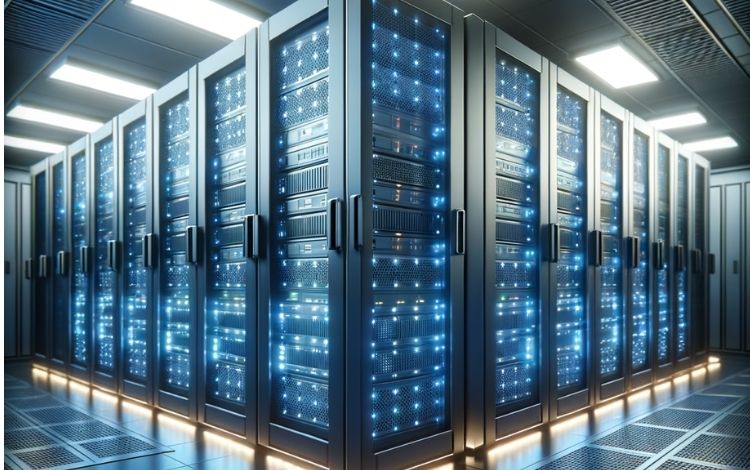
8. What is the role of GPUs in Google AI Servers?
GPUs play a critical role in Google AI servers, particularly in deep learning and neural network training. GPUs are designed for parallel processing, making them well-suited for handling the large-scale matrix operations required by AI algorithms. Google uses GPU AI servers primarily for tasks that involve training complex models with massive datasets.
NVIDIA GPUs, such as the A100, are commonly integrated into Google AI servers, providing significant computational power. According to benchmark tests, the A100 GPU can deliver up to 312 teraflops, making it one of the most powerful GPUs in the market for AI workloads.
9. How do Google AI Servers handle data security?
Data security is a top priority for Google AI servers, especially since they are often used to process sensitive information. Google employs multiple layers of security, including encryption both at rest and in transit. Data is stored in secure data centers, and access is tightly controlled through advanced authentication mechanisms.
Additionally, Google AI servers are compliant with various industry standards and regulations, such as GDPR and HIPAA, ensuring that businesses can use these servers for applications in highly regulated industries like healthcare and finance.
10. How can small businesses benefit from Google AI Servers?
Small businesses can take advantage of Google AI servers by accessing high-performance AI infrastructure without making large upfront investments in hardware. Google’s cloud-based pay-as-you-go model allows small businesses to scale their AI operations as they grow, providing flexibility and cost-effectiveness.
Additionally, Google AI servers offer a range of pre-built AI solutions and APIs, such as Google Cloud Vision and Google Natural Language, which allow small businesses to integrate AI capabilities into their products and services without needing a team of data scientists or AI specialists.
11. What is the relationship between Google AI Server and TensorFlow?
TensorFlow, Google’s open-source machine learning framework, is deeply integrated with Google AI servers. TensorFlow is optimized to run on Google’s hardware, including TPUs and GPUs, allowing developers to build, train, and deploy AI models efficiently.
TensorFlow’s compatibility with Google AI servers ensures that AI models can be scaled easily, whether they are running on a single machine or across thousands of servers in the cloud. This integration also allows for seamless model deployment, with Google AI servers providing the computational power needed for real-time inference and large-scale model training.
12. What are the environmental impacts of Google AI Servers?
Google has made significant efforts to reduce the environmental impact of its AI servers. The company has committed to running its data centers, including those that host its AI servers, on 100% renewable energy. In 2020, Google announced that it had become carbon-neutral, and by 2030, the company aims to operate on carbon-free energy 24/7.
By using energy-efficient hardware such as TPUs and optimizing server infrastructure, Google has also reduced the amount of power consumed per AI operation. This focus on sustainability makes Google AI servers an environmentally friendly option for businesses.
13. What is the pricing model for Google AI Servers?
The pricing for Google AI servers is based on a pay-as-you-go model, which means businesses only pay for the computing resources they use. Google offers flexible pricing options, including per-second billing, which allows businesses to optimize their costs based on their specific needs.
Additionally, Google provides discounts for long-term usage through committed use contracts, which can offer savings of up to 57%. This pricing flexibility makes Google AI servers accessible to businesses of all sizes, from startups to large enterprises.
14. How does Google AI Server compare to Intel AI Server?
When comparing Google AI servers to Intel AI servers, it’s important to note that Google’s infrastructure is designed primarily for cloud-based AI workloads, while Intel AI servers are often deployed on-premise. Google AI servers offer the advantage of scalability and integration with Google Cloud services, making them ideal for businesses looking for flexible, cloud-based solutions.
Intel AI servers, on the other hand, are known for their high-performance hardware, particularly their Xeon processors, which are optimized for AI tasks. For businesses that prefer to manage their AI infrastructure in-house, Intel AI server solutions offer a robust alternative.
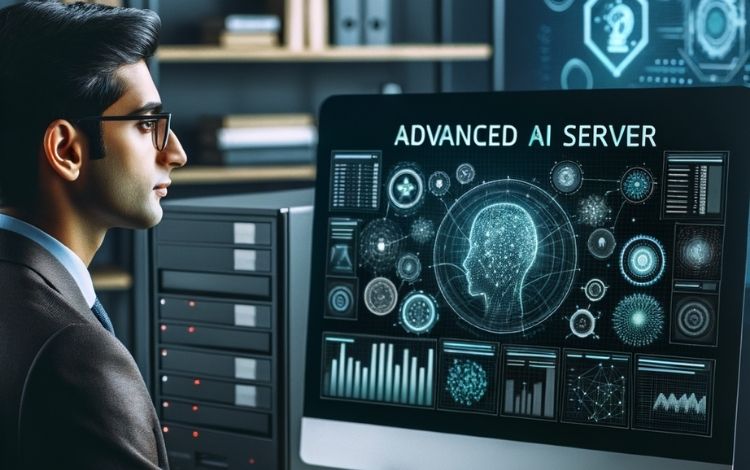
15. Can Google AI Servers be used as home AI servers?
While Google AI servers are primarily designed for enterprise and cloud-based applications, individuals and small teams can use them for personal projects or as home AI servers. Google Cloud offers free tiers and affordable pricing options, making it possible for hobbyists and developers to experiment with AI without incurring significant costs.
By using Google AI servers in the cloud, users can access powerful computing resources from their home environment, without needing to invest in expensive hardware like GPUs or TPUs.
16. What is the future of Google AI Servers?
The future of Google AI servers looks promising, with ongoing advancements in AI hardware and software. Google is continuously improving its TPUs, with the next generation expected to offer even more processing power and energy efficiency. Additionally, Google is investing heavily in AI hub server infrastructure, which will make it easier for businesses to access pre-built AI models and deploy them at scale.
With the rise of edge computing and the increasing demand for real-time AI applications, Google AI servers will continue to evolve, providing businesses with the tools they need to stay competitive in the AI-driven future.
